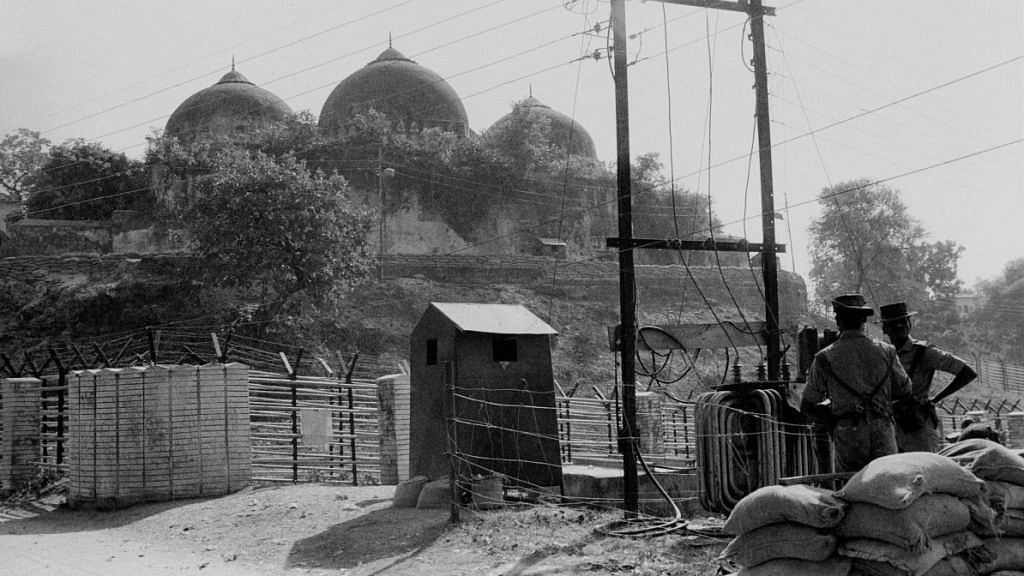New Delhi: As the Supreme Court Saturday awarded the disputed land in Ayodhya to the Hindus, it also condemned the placing of idols inside the Babri Masjid in 1949, and its demolition on 6 December 1992.
In 1949, a group of Hindus had broken into the mosque and placed idols of Ram and Sita on the premises. Then, in 1992, the structure was demolished by kar sevaks.
The bench delivering the verdict, comprising Chief Justice of India Ranjan Gogoi and Justices S.A. Bobde, D.Y. Chandrachud, Ashok Bhushan and S.A. Nazeer, asserted that the Muslims were deprived of the mosque in a manner not allowed in a secular nation.
“Justice would not prevail if the court were to overlook the entitlement of the Muslims, who have been deprived of the structure of the mosque through means which should not have been employed in a secular nation committed to the rule of law,” the bench observed.
“…The entire structure of the mosque was brought down in a calculated act of destroying a place of public worship,” it said. “The Muslims have been wrongly deprived of a mosque which had been constructed well over 450 years ago.”
The apex court’s words are significant, since a Lucknow court is in the process of hearing a criminal case pertaining to the demolition of the Babri Masjid and the alleged criminal conspiracy behind it. Prominent BJP leaders such as L.K. Advani, Murli Manohar Joshi and Uma Bharti are among the accused in the case.
Legal experts believe the Supreme Court’s observations in Saturday’s judgment is unlikely to bear an impact on the criminal trial.
Also read: 4 reasons why SC rejected Muslims’ claim on Ram Janmabhoomi site
Cases to be decided independently
Delhi-based criminal lawyer Ajay Verma explained that these are essentially two very different cases — one a title dispute related to ownership of the land, and the second a criminal trial, which goes beyond ownership.
He told ThePrint, “The judgment will have no impact on the criminal trial arising out of FIRs filed by the CBI in relation to the demolition of the Babri Masjid at Ayodhya. The honourable court, in today’s judgment, has clearly observed that ‘the damage to the mosque in 1934, its desecration in 1949 leading to the ouster of the Muslims, and the eventual destruction on 6 December 1992 constituted a serious violation of the rule of law’.”
He added, “The Supreme Court was conscious about the pendency of the trial and the impact of any observation in today’s judgment.”
Verma said the parties before the criminal trial would have to prove their case “beyond reasonable doubt”, which is the legal standard of proof in a criminal trial. This is as against “preponderance of probabilities” in civil cases. In other words, the standard of proof is stricter in criminal trials, as compared to civil cases.
This is why the Supreme Court has earlier held that “there is neither any statutory provision nor any legal principle that the findings recorded in one proceeding may be treated as final or binding in the other, as both the cases have to be decided on the basis of the evidence adduced therein”.
Also read: UP Sunni Waqf Board accepts Ayodhya verdict, no review petition to be filed
